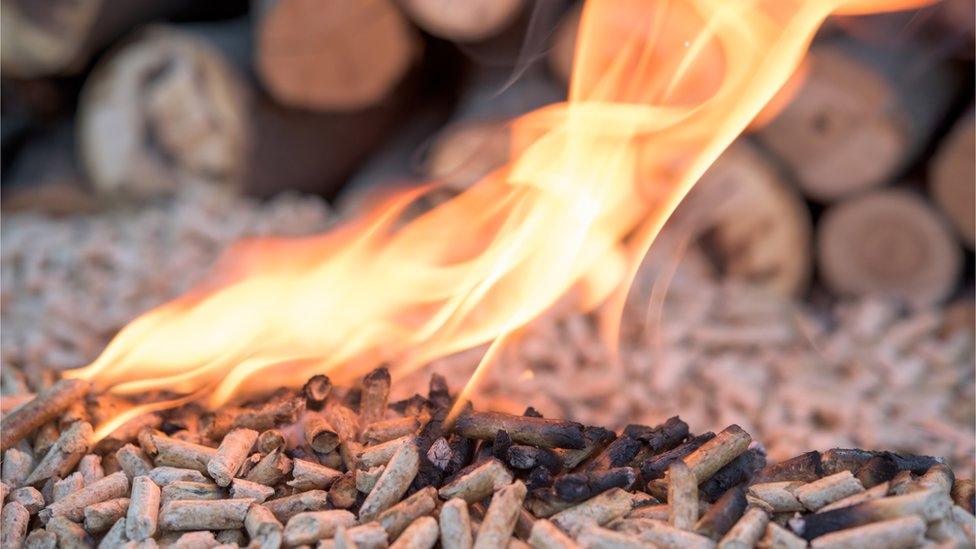Renewable Heat Incentive scheme's £30m overspend investigated
- Published

The scheme was set up several years ago to encourage domestic and business users to change to biomass heating systems, mostly wood pellets
An investigation is under way after allegations from whistle-blowers about the operation of a renewable energy scheme that led to a £30m overspend.
It followed a huge spike in applications for the non-domestic end of the renewable heat incentive scheme.
The investigation will include a check on one in 10 of all schemes approved.
The scheme was set up several years ago to encourage domestic and business users to change to biomass heating systems, mostly wood pellets.
Industry Minister Jonathan Bell announced on Friday his intention to close it to new applications.
On Tuesday, officials told the enterprise committee that £30m would have to come out of the block grant in 2016/7 to pay for it.
The renewable heat incentive scheme applies to both home and business users.
Businesses get about £24,000 a year over a 20-year term for installing one of the renewable heat systems.
The benefits to domestic applicants are less lucrative, with an upfront payment of about £3,500 and £1,200 a year for seven years.
'Turn the tap off'
Mr Bell told the assembly that the chancellor had limited the amount of money being paid to Northern Ireland out of the UK pot for renewable heat, and that had led to the problem.
He said the scheme had been oversubscribed and it had created a "huge budgetary pressure" not just for his department, but for the whole of Northern Ireland.
Dr Andrew McCormick, the Department of Enterprises's permanent secretary, said there had been a need to "turn the tap off" as quickly as possible to contain the overspend.
He said it produced a "very serious financial issue" and it was the minister's "judgement that it was necessary to suspend the scheme immediately to prevent that overspend becoming even worse".
The committee was told that "whistle-blower allegations" had been received through the Office of the First and Deputy First Minister.
These have been drawn to the attention of the regulator Ofgem, which administers the scheme across the UK.
Treasury funds covered the scheme up to a certain level, but due to the spike in applications at the end of last year, there was a large funding gap which would have to be covered from the Stormont budget.
Nine hundred applications had been received over three years. In a six-week period last Autumn, a further 900 applications flooded in.
Dr McCormick said with the scheme closed to new entrants, the funding gap would reduce in future years, but would still be £11m by 2021.
Committee chair Patsy McGlone said the sudden closure of the scheme would threaten jobs and businesses.
He said one installation company believed it could cost it up to £1m and put 25 jobs at risk.
The Ulster Farmers Union told the committee that 50 poultry projects could be at risk as a result of the scheme's closure.